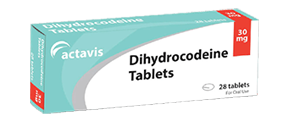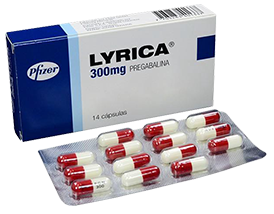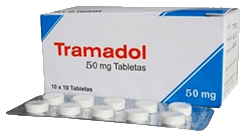 USD -
( $
)
USD -
( $
) GBP -
( £ )
GBP -
( £ ) EUR
- ( € )
EUR
- ( € ) BTC -
( )
BTC -
( )
- 0 Cart
Sleep is important for both physical and mental health. A large number of UK residents face difficulties with sleeping both at initiation and maintaining restful sleep. When lifestyle changes and natural remedies don't work, medications like Zopiclone tablets can offer short-term relief. But how does this work? What makes it effective, and what should you know before taking it?
In this blog, we will explore Zopiclone's mechanisms of action, its effectiveness in treating insomnia, and the best practices for using it safely. Whether you're considering this medication for yourself or just seeking clarity, this comprehensive guide will walk you through the essentials.
First of all, we need to understand what Zopiclone is. Insomnia is not just the inability to sleep, but it is a persistent challenge of achieving restorative sleep, often resulting in fatigue, poor concentration, and more disturbances.
In the UK, it is estimated that one in three people suffer from at least mild insomnia. At the same time, cognitive-behavioral therapy for insomnia (CBT-I) is the best for long-term treatment. Medications like Zopiclone are often prescribed to get immediate relief.
Zopiclone functions as a non-benzodiazepine hypnotic drug that doctors usually use to treat short-term sleep problems. Z-drugs represent the drug classification where Zopiclone belongs. Therefore, it helps patients both to sleep and maintain it while avoiding addiction.
In the UK, Zopiclone is usually available in 3.75 mg and 7.5 mg tablet forms. The lower dose is generally recommended for older adults, while the higher dose is used for adults with more severe sleep difficulties.
Doctors prescribe it for no longer than two or four weeks as it can make people dependent on it severely.
Zopiclone acts on the brain's gamma-aminobutyric acid (GABA) receptors. The natural brain neurotransmitter GABA creates a homogeneous flux of signals that produce both relaxation and sleepiness effects. The nervous system experiences enhanced activity of GABA through Zopiclone which accelerates its sedative properties in the brain.
Its effects begin within 30 to 60 minutes of ingestion. The drug remains active from 6 to 8 hours thereby enabling you to receive a full night of rest.
When taken correctly, this medicine effectively treats sleep issues short term. Studies show that it can:
However, the body can tolerate Zopiclone 7.5 mg. So, it may not work as well over time. It should never be used longer than 4 weeks without medical supervision.
To increase its benefits and reduce risks, it is important to follow proper usage guidelines:
Like any medication, Zopiclone can cause side effects. Most are mild and tend to resolve as your body adjusts, but some require medical attention.
If you experience confusion, mood changes, or activity you don't recall doing, contact your general physician immediately.
Although Zopiclone is less addictive than traditional sleeping pills, then also, dependency can develop with misuse or prolonged use.
Doctors recommend using Zopiclone as a short-term medication treatment for a duration of two to four weeks. People who use Zopiclone need to stop treatment with doctor supervision over an extended period. Working with your GP will create a gradual reduction approach that makes it easier for your body to adjust to the drop in medication.
However, Zopiclone is best suited for short-term use; exploring non-drug strategies can provide longer-lasting results. Consider the following alternatives:
All patients cannot use the medication zopiclone. Zopiclone poses risks for pregnant or breastfeeding women because it can impact their babies. People who previously misused substances face a higher possibility of developing a dependency condition. Individuals dealing with liver disease, sleep apnoea, or any other breathing problems will likely find their symptoms becoming more severe while using Zopiclone. Each person who experienced serious reactions to comparable sleep medicines needs medical approval before using Zopiclone. People should never begin this medicine without first seeking medical consultation.
Zopiclone can be a powerful aid for managing short term insomnia, especially when sleeplessness begins to affect your quality of life. Its mechanism of action helps to calm the brain and initiate sleep quickly, offering relief when other strategies have failed. However, it is not made for long-term use and comes with potential reach, including dependency and next-day drowsiness.
Ultimately, understanding how Zopiclone works and using it responsively can give you the short-term rescue need while giving way to healthier drug-free sleep in the long run.

From only £0.81
Dihydrocodeine 30mg is a strong painkiller which is generally prescribed when other painkillers such as Paracetamol, ibuprofen, or Codeine have not help relieve pain.

From only £0.81
Co-Codamol 30/500mg is used to treat severe pain that is not relieved by other painkillers. This dose may be taken, up to 4 times a day at intervals of not less than 6 hours.

From only £0.81
Pregabalin also called anticonvulsant works by slowing down impulses in the brain that cause seizures. This medicine is incredibly useful for people with chronic neuropathic pain.

From only £0.81
Tramadol is an oral medication which is generally prescribed to help relieve ongoing moderate to severe pain. This medicine works in the brain to change how your body feels and respond to the pain.
Your email address will not be published. Required fields are marked *